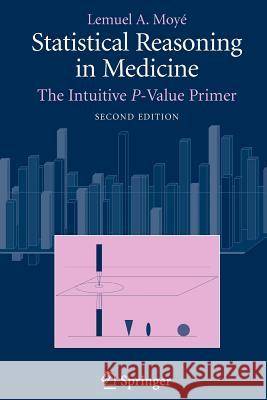Statistical Reasoning in Medicine: The Intuitive P-Value Primer » książka
Statistical Reasoning in Medicine: The Intuitive P-Value Primer
ISBN-13: 9780387329130 / Angielski / Miękka / 2006 / 302 str.
Lowers the Learning Curve for Physicians and Researchers The successful Statistical Reasoning in Medicine: The Intuitive P-value Primer, with its novel emphasis on patient and community protection, illustrated the correct use of statistics in health care research for healthcare workers. Through clear explanations and examples, this book provided the non-mathematician with a foundation for understanding the underlying statistical reasoning process in clinical research, the core principles of research design, and the correct use of statistical inference and p-values. The P-Value Primer 2nd Edition levels the learning curve of statistics for health care researchers by further de-emphasizing mathematical and computational devices, bringing the principles of statistical reasoning closer to the uninitiated. Adding to the updated discussions of research design, hypothesis testing, regression analysis, and Bayes procedures, are new discussions of absolute and relative risk, as well as a lucid description of the number needed to treat (NNT). The multiple analysis issue is clearly defined, and a new description of the correct use and interpretation of combined endpoints in health care research is offered in an easily digestible format. The P-value Primer 2nd Edition demolishes other obstacles that have impeded a clear understanding of the application of statistics in medicine. The intertwined roles of epidemiology and biostatistics are depicted. In addition to a description of the non-technical history of statistics, a new discussion describes the active cultural forces that have historically argued against the use of probability and statistics, placing the current applications and controversies involving p-values in context. New illustrations of the difficulties physicians and health care providers face in research are offered, and the differences between research skills and statistical skills are distinguished. New discussion describing the process of scientific reasoning, p-values, and the law is included. All of this nonstandard content, so essential for a well rounded perspective on the modern use of statistics in medicine, makes this volume unique among introductory statistics books. New figures, conversation, and illustrations fortify each chapter. In addition, three new appendices have been added on the normal distribution, sample size computations, and new requirements for the use of statistics in the courtroom.











